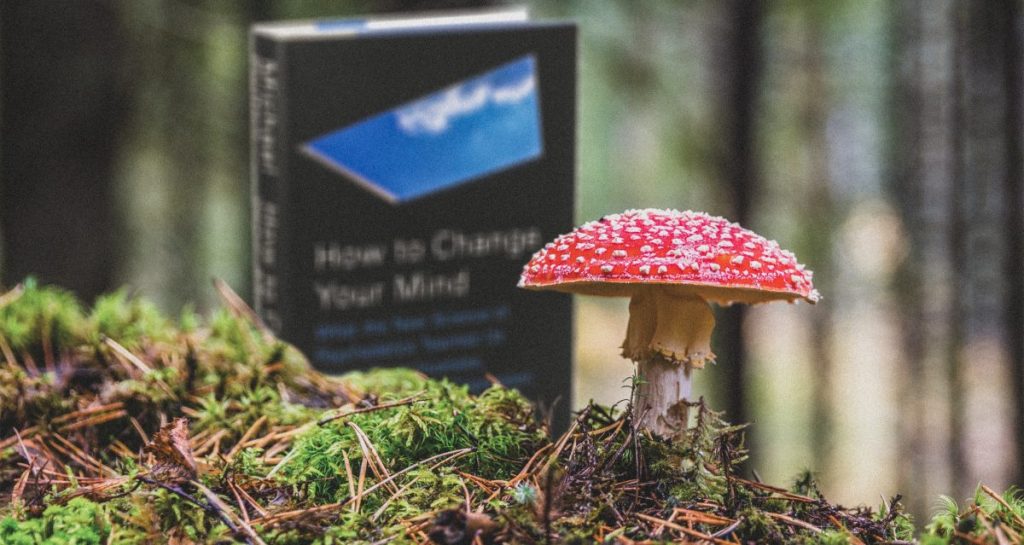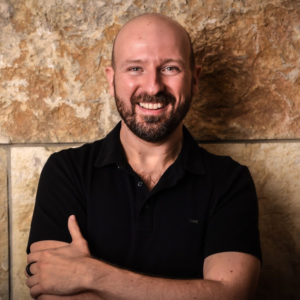“To put words to an experience that was, in fact, ineffable…and then to shape them into sentences and then a story, is inevitably to do it a kind of violence. But the alternative is, literally, unthinkable,”
Michael Pollan, How to Change Your Mind: What the New Science of Psychedelics Teaches Us About Consciousness, Dying, Addiction, Depression, and Transcendence.
Michael Pollan never planned to usher in the third psychedelic wave. He couldn’t have predicted a straight path from his first book in 1991, Second Nature, to his psychedelic exploration, How to Change Your Mind in 2018. But every word Pollan wrote throughout his award-winning career made him the perfect conduit to the unexplainable: the transcendent, mystical, and life-changing experience of mind-opening substances. By translating ineffable journeys into explicit, relatable, heart-wrenching stories, Pollan released psychedelics from their stigmatized shackles into modern world acceptance.
Michael Pollan: The Writer
A Long Island native, Michael Pollan received his Master’s in English from Columbia University before entering the world of professional storytelling. In 1987, Pollan became a contributing writer at The New York Times Magazine and published his first book a few years later. Through his best books, essays, and articles, author Michael Pollan has continuously explored topics where humans and nature intersect. Aside from A Place of My Own, where he recounts constructing a tiny home in rural Connecticut, Pollan has focused on food and food systems as the intersection of humans and nature. And with every new angle he’s taken, Pollan’s words have resonated. In fact, six of eight books topped The New York Times Best Seller List, including:
- The Botany of Desire: A Plant’s-Eye View of the World
- The Omnivore’s Dilemma: The Search for a Perfect Meal in a Fast-Food World
- In Defense of Food: An Eater’s Manifesto
- Food Rules: An Eater’s Manual
- Cooked: A Natural History of Transformation
Pollan’s stories are wildly popular, but his work transcends entertainment. He sets out to inform and to change minds, and he often does that through investigative journalism.
For many years, Pollan served as the executive editor for The New Yorker. In 2000, he received the Reuters-I.U.C.N. Global Award for Environmental Journalism for his examination of genetically modified crops. A few years later, he became the John S. and James L. Knight Professor of Journalism at University of California (UC) Berkeley’s Graduate School of Journalism and the Knight Program director in Science and Environmental Journalism. Pollan’s work has appeared in several publications, including Best American Essays, Best American Science Writing, and the Norton Book of Nature Writing. In 2010, Time magazine named Pollan one of the 100 most influential people in the world.
Until 2015, everyone thought Pollan was obsessed with how to eat food. They assumed his award-winning prose and 4.5-star-rated Amazon audiobooks would eternally investigate nutrition. They were right to think that. Pollan even starred in Cooked, a four-part Netflix docuseries alongside the famed chef, Samin Nosrat.
But they were all wrong. In 2019, Pollan told NPR that he was never fixated solely on the things we eat. “My interest in food and agriculture really grew out of my interest in nature and how we engage with the natural world,“ says Pollan. Refusing to be defined by his previous books and famous documentaries like Food, Inc., Pollan took a sharp left turn.
Pollan’s Foray into Psychedelics
In 2015 Michael Pollan wrote an article for The New Yorker, “The Trip Treatment,” exploring psychedelics’ latest research. The piece began with a story about how Patrick Mettes, a TV news director with terminal cancer, found meaning at the end of his life through psilocybin. Throughout the remaining 10,000-plus-word essay, Pollan investigated the latest psychedelic research for various mental health issues and spoke with leading experts in the field.
Stephen Ross, an associate professor of psychiatry at NYU’s medical school, told Pollan that after one psilocybin dose, cancer patients experienced “immediate and dramatic reductions in anxiety and depression [that lasted] for at least six months.”
Neuroscientist Robin Carhart-Harris told Pollan that psilocybin therapy wasn’t limited to the terminally ill. Carhart-Harris said he believed anyone “suffering from mental disorders characterized by excessively rigid patterns of thinking, such as addiction and obsessive-compulsive disorder” stood to experience profound benefits from psychedelic drugs.
Pollan’s words revealed a key theme. People suffering from depression, anxiety, and addiction can find the kind of relief through psychedelics that medication like Xanax could never offer. Anecdote after anecdote, Pollan resonated with readers worldwide. “The Trip Treatment” was so well-received that Pollan decided to write a new book.

How to Change Your Mind
Unlike “The Trip Treatment”, which Pollan wrote from an outsider’s perspective, How to Change Your Mind emerged from exhaustive research and direct, personal experience. Over two years, Pollan investigated the therapeutic use of LSD, psilocybin, ayahuasca, and 5-MeO-DMT. To better understand their effects, Pollan found experienced psychedelic “guides” to immerse him in their teachings.
LSD
To guide his LSD experience, Pollan chose a well-studied man named “Fritz” from the American West. In Fritz’s octagon-shaped yurt, Pollan took a psycholytic dose of LSD, allowing him to explore the psyche while remaining coherent enough to talk about it. Throughout the journey, Pollan never completely severed ties with his ego but experienced greater empathy towards his father and a muffling of that “controlling voice” inside his head. In fact, his wife, Judith Belzer, noted he was unusually chatty, available, and present for several days afterward.
Psilocybin Mushrooms
Pollan’s psilocybin mushroom journey took place in a suburb on the East Coast guided by a woman named “Mary”. Before the experience, Pollan worried he might lose his mind to the hallucinations. Fortunately, Pollan said, “the serpent of madness that I worried might be waiting had not surfaced.” Instead, Pollan experienced ego dissolution and an awareness that there may be a “less neurotic and more generous [way] to perceive reality”. Having a taste of that vantage point, Pollan realized for the first time that he could be less inextricably tied to defensive, trigger-happy tendencies.
5-MeO-DMT
To smoke “one of the most potent and fast-acting psychotropic drugs there is,” Pollan enlisted a 35-year-old Mexican therapist he calls “Rocío”. Rocío, who had previous experience administering 5-MeO-DMT as a drug addiction treatment, guided Pollan on what he described as a terrifying experience. “I was no longer there,” and yet “expanding to become all that there was.” Pollan wondered if that was what death might feel like, but fortunately, he didn’t stay nothing for long. When he returned to time and space, Pollan described experiencing his birth and the birth of his son, followed by overwhelming gratitude for existence and his family.
Pollan wasn’t dying, and he didn’t have a mental illness, but he certainly struggled with self-described rigidity. He walked away from the experiences knowing his mind was more malleable than he once thought. He was capable of greater balance, presence, and ease.
The power of words
As a result of his journeys, Pollan gained a far better understanding of psilocybin therapy than any research paper could have described. He could write with greater authority about how psychedelics could soften mental resistance. More importantly, he could write with compassion when recounting stories of people who had overcome addictions, depression, anxieties, and fear of death.
Pollan’s description of Peter Mettes was particularly profound. During Mettes’s psilocybin journey, he encountered his brother’s late wife, who had died of cancer years earlier. She acted as his tour guide and released him from his fears. In How to Change Your Mind, Pollan recounts Mettes’s realization.
“I was convinced that at that moment I had figured it all out… It was right there in front of me… Love… the only thing that mattered.”

The Reluctant Psychonaut’s Impact
A self-described “reluctant psychonaut”, Michael Pollan has been one of the most influential people in accelerating the mainstream psychedelic renaissance because his reporting is so accessible, unbiased, and thorough. He writes in a relatable way that’s easy to understand, especially for middle-aged Americans whom the War On Drugs has brainwashed. Following the release of How to Change Your Mind, Pollan continued spreading the word through a diverse set of channels, including TEDTalks, popular podcasts like Tim Ferriss and The Joe Rogan Experience, NPR, and Google. As a result of his ability to translate the unexplainable, Pollan has helped garner more support for psychedelic medicine exploration than ever before, leading to changing attitudes about personal use, stigma, and government reform.
Thank goodness he did it. The alternative would be unthinkable.
Psychedelics alone can’t heal you, but, used wisely, they can be a great catalyst for healing. If you’re interested in microdosing psychedelics and want to do it with expert guidance rather than going it alone, join Third Wave’s Microdosing Course. Using the latest research from cutting-edge scientists and doctors, we’ll help you develop a customized, step-by-step process to change habits, enhance creativity, and optimize performance.
All artwork by Shea Jozana, @gaiafightsback.
Disclosure: This article contains offers and affiliate links. Third Wave receives a small percentage of the product price if you purchase through affiliate links. Read our ethics and affiliates policy here.








I am a 73 yr old woman who did blotter acid a few times in the 60’s, was a regular cannabis user until I married and started a family. After my children were grown I began using cannabis again in 2012. And I continue to use cannabis daily, or close to it. I have been a high functioning person with intractable depression which I manifested by raging, deep depression, and suicidal ideation.
My dearest and long time friend introduced me to microdosing psilocybin in 2018.
I went through 3 different micro doses with months in between each dosing. I used James Fadiman’s dosing and protocols. ALL of my suicidal ideation has completely stopped. Even on a ”bad” day now, no thoughts of suicide come to mind.
Unfortunately my source for organically grown psilocybin mushrooms has been lost, and now so am I! I want to continue to expand, be kinder, and rid myself of this dark cloud that still exists in my life. If there is ever a study on aging and use of psychedelics for depression, sign me up! I already participate in the Citizen’s Science study of microdosing. Tell me how to help get this legalized!